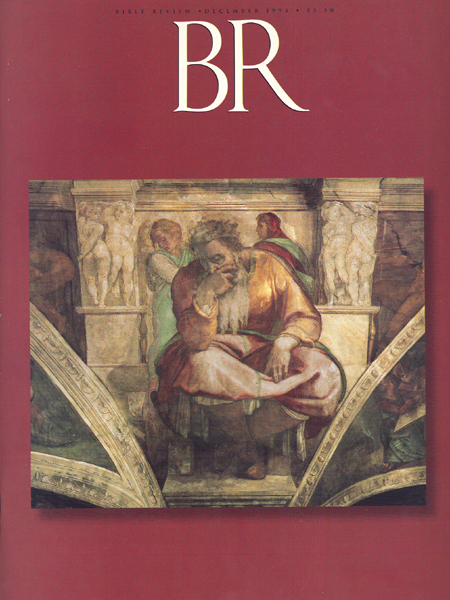Bible Review, December 1994

Features
Biblical archaeology envisions a dialogue between artifacts and the scriptural text. In many ways archaeology can provide the context that brings the text to life. Recently I completed a book on Jeremiah and archaeology in which I fill in the background of the prophet’s entire work.1 Here we will look at a single passage […]
Some readers may have noticed that two beautiful paintings of the Ten Commandments in a recent BR picture them differently.aIn the Rembrandt painting, the Sixth Commandment runs “You shall not commit adultery.” In the Rembrandt painting, the Tenth Commandment includes all the prohibitions against coveting. But in the de Champaigne painting, the coveting prohibitions […]
What Jesus was doing at the Last Supper has not been understood for the better part of 2,000 years. The reason for the misunderstanding is that Jesus, a Jewish teacher who was concerned with the sacrificial worship of Israel, has been treated as if he were the deity in a Hellenistic cult. A generation […]
In the previous article Bruce Chilton presents some convincing ideas regarding the eucharistic words Jesus uttered at the Last Supper: “This is my body [the bread]; this is my blood [the wine]” (with slight variations in Mark 14:22–24; Matthew 26:26–28; Luke 22:19–20; and 1 Corinthians 11:24–25). The traditional interpretation is that Jesus is referring […]
